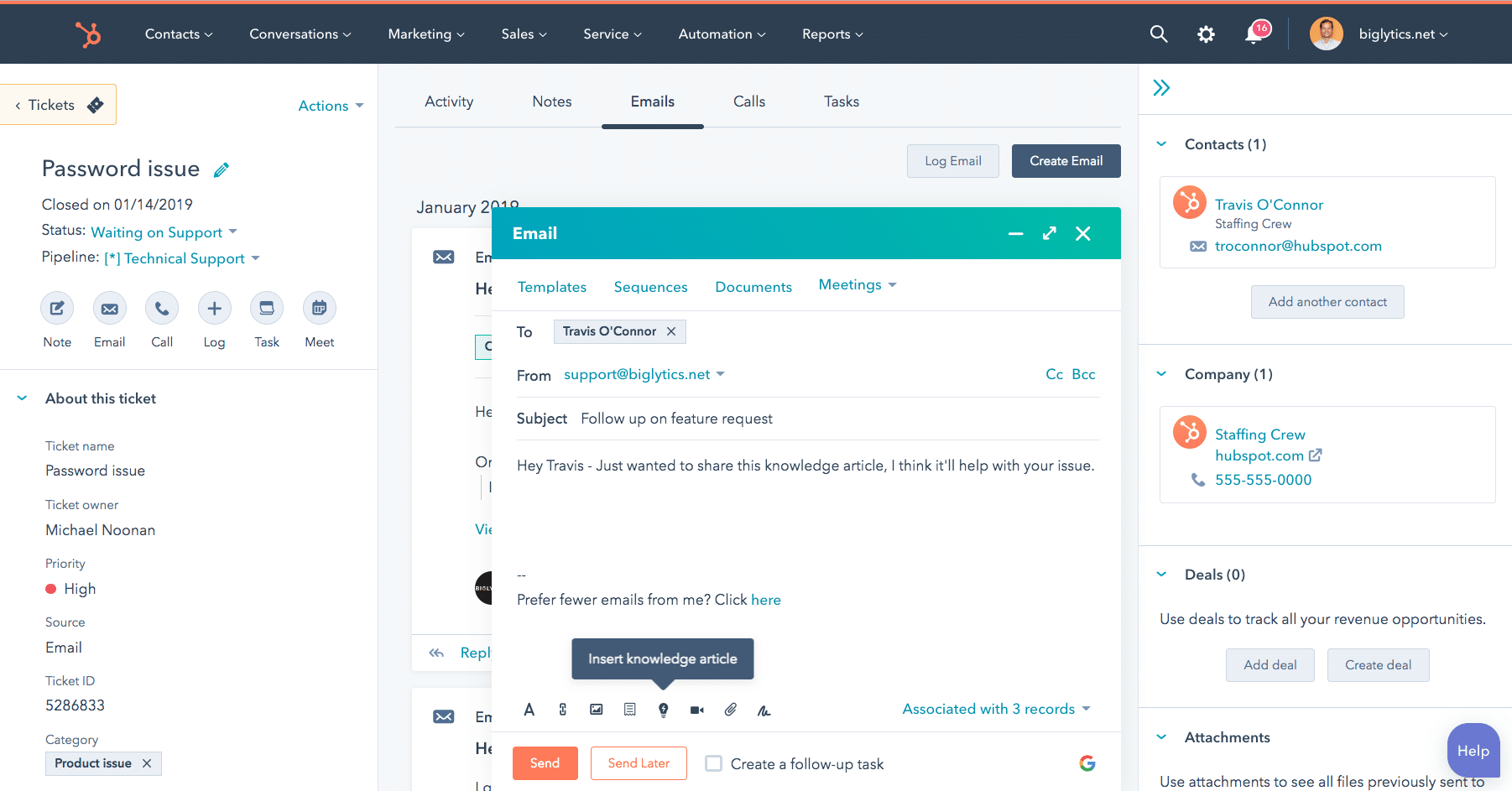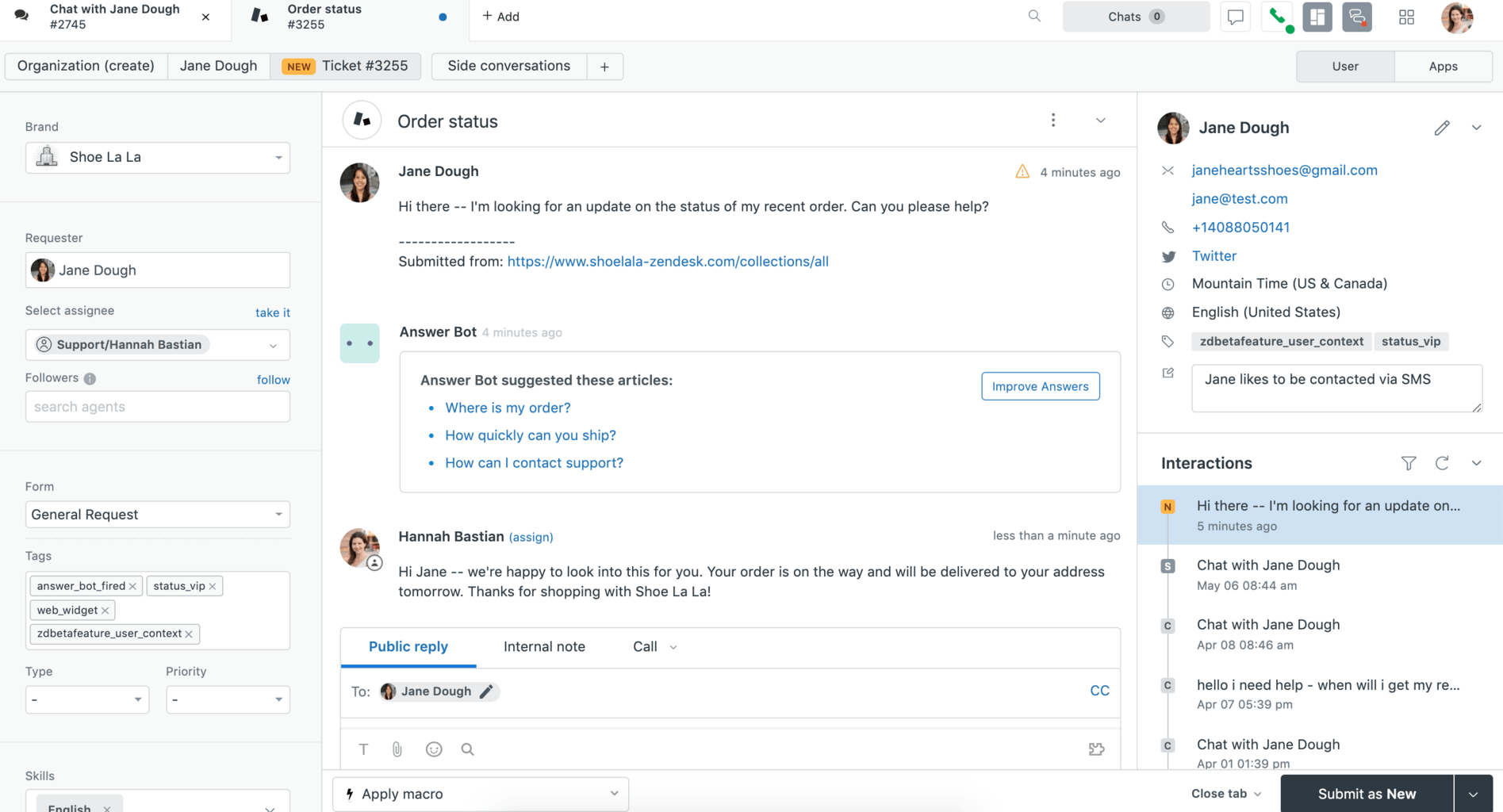Customer service software is no longer a luxury; it’s a necessity for businesses of all sizes. In today’s competitive landscape, providing exceptional customer experiences is paramount to success. Customers expect instant responses, personalized support, and seamless interactions across multiple channels. A poorly managed customer service operation can lead to lost revenue, negative reviews, and damage to your brand reputation. That’s where robust customer service software comes in. This article will explore the key benefits, features, and popular solutions available to help you optimize your customer service efforts and drive customer loyalty. Customer service software empowers businesses to handle inquiries efficiently, resolve issues quickly, and build lasting relationships with their customers. It’s an investment that pays dividends in terms of increased satisfaction, reduced operational costs, and ultimately, a stronger bottom line.

Understanding the Current Customer Service Landscape

The way customers interact with businesses has dramatically shifted. Gone are the days of simply answering phone calls. Today, customers expect instant access to information and support through channels like email, chat, social media, and mobile apps. This expectation is fueled by several factors: increased internet access, the proliferation of smartphones, and a growing preference for self-service options. Businesses that fail to meet these expectations risk losing customers to competitors who prioritize a superior customer experience. Furthermore, customer service is increasingly becoming a key differentiator in a crowded marketplace. Standing out requires more than just good service; it demands a strategic approach to managing interactions and delivering a consistently positive experience. The rise of AI and automation has also introduced new challenges and opportunities for customer service teams, requiring them to adapt and embrace new technologies.

Key Benefits of Customer Service Software
Implementing a customer service software solution offers a multitude of benefits. Let’s delve into some of the most significant advantages:

- Improved Response Times: Automated ticketing systems and knowledge bases allow agents to quickly route inquiries to the appropriate resources, reducing wait times and ensuring customers receive timely assistance. This is a critical factor in customer satisfaction.
- Enhanced Agent Productivity: Software streamlines workflows, automates repetitive tasks, and provides agents with the tools they need to handle inquiries effectively. This frees up agents to focus on complex issues and build stronger relationships with customers.
- Centralized Customer Data: Customer service software consolidates all customer interactions – emails, chat logs, phone calls, social media mentions – into a single, accessible platform. This provides a 360-degree view of the customer, enabling agents to personalize interactions and resolve issues more efficiently.
- Increased Customer Satisfaction: By providing faster, more efficient, and more personalized support, customer service software directly contributes to higher levels of customer satisfaction. Happy customers are more likely to remain loyal and recommend your business to others.
- Reduced Operational Costs: Automation and streamlined workflows can significantly reduce the workload on customer service teams, leading to lower labor costs and improved efficiency.
- Better Analytics and Reporting: Software provides valuable insights into customer service performance, allowing businesses to identify trends, track key metrics, and make data-driven decisions to improve their operations. Understanding where customers are struggling is crucial.
Top Features to Look for in Customer Service Software
Choosing the right customer service software requires careful consideration. Here’s a breakdown of key features to evaluate:

- Ticketing System: A robust ticketing system is the foundation of any effective customer service operation. It allows you to track inquiries, assign tasks, and manage resolutions.
- Knowledge Base: A comprehensive knowledge base empowers agents with the information they need to quickly answer customer questions. It’s a vital component for self-service.
- Live Chat: Live chat provides instant support to customers, resolving simple issues and freeing up agents for more complex inquiries.
- Email Integration: Seamless integration with email platforms ensures that all customer communication is tracked and managed in one place.
- Omnichannel Support: The ability to support customers across multiple channels (email, chat, phone, social media) is increasingly important.
- Reporting and Analytics: Detailed reporting and analytics provide insights into customer service performance, allowing you to identify areas for improvement.
- AI-Powered Chatbots: Chatbots can handle simple inquiries, freeing up agents to focus on more complex issues and provide 24/7 support. However, these need careful implementation and monitoring.
- Workflow Automation: Automate repetitive tasks, such as ticket routing and email responses, to improve efficiency.
Popular Customer Service Software Solutions
Several leading providers offer comprehensive customer service software solutions. Here are a few popular options:

- Zendesk: A widely used platform known for its versatility and robust features.
- Salesforce Service Cloud: A powerful solution integrated with the Salesforce CRM platform.
- Freshdesk: A user-friendly and affordable option with a strong focus on self-service.
- Help Scout: A popular choice for small businesses, known for its intuitive interface and excellent email integration.
- HubSpot Service Hub: An integrated solution that seamlessly connects customer service with marketing and sales.
Choosing the right software depends on your specific business needs and budget. Many vendors offer free trials, allowing you to test the platform before making a commitment.

The Role of AI in Modern Customer Service
Artificial intelligence (AI) is rapidly transforming the customer service landscape. AI-powered chatbots are becoming increasingly sophisticated, capable of handling a wider range of inquiries and providing more personalized support. AI can also be used to analyze customer data, identify trends, and proactively address potential issues. However, it’s crucial to remember that AI should augment human agents, not replace them entirely. A hybrid approach, combining the efficiency of AI with the empathy and problem-solving skills of human agents, is often the most effective strategy.

Measuring the Success of Your Customer Service Software
It’s essential to track the success of your customer service software to ensure it’s delivering the desired results. Key metrics to monitor include:
.png)
- Customer Satisfaction (CSAT): A measure of how satisfied customers are with your service.
- Net Promoter Score (NPS): A measure of customer loyalty and willingness to recommend your business.
- First Contact Resolution (FCR): The percentage of inquiries resolved on the first contact.
- Average Handle Time (AHT): The average time it takes to resolve an inquiry.
- Ticket Volume: The number of inquiries received.
- Agent Productivity: The number of inquiries resolved per agent.
By consistently monitoring these metrics, you can identify areas for improvement and optimize your customer service software strategy.

Future Trends in Customer Service Software
The customer service software market is constantly evolving. Here are some key trends to watch:
- Increased Use of AI and Automation: AI-powered chatbots and automation will continue to play a growing role in customer service.
- Personalized Customer Experiences: Software will increasingly leverage customer data to deliver personalized experiences.
- Voice-Enabled Customer Service: Voice assistants and virtual agents will become more prevalent.
- Proactive Customer Service: Software will anticipate customer needs and proactively offer support.
- Integration with Other Business Systems: Seamless integration with CRM, marketing automation, and other business systems will become increasingly important.
Conclusion
Customer service software is no longer a “nice-to-have” – it’s a must-have for businesses seeking to thrive in today’s competitive environment. By investing in the right software and implementing a strategic approach to customer service, you can significantly improve customer satisfaction, reduce operational costs, and build lasting relationships with your customers. The key is to choose a solution that aligns with your specific business needs and to continuously monitor and optimize your customer service efforts. Customer service software is an investment in your business’s future. Don’t hesitate to explore the various options available and select the solution that best fits your requirements. Ultimately, prioritizing the customer experience is the foundation of sustainable business success.